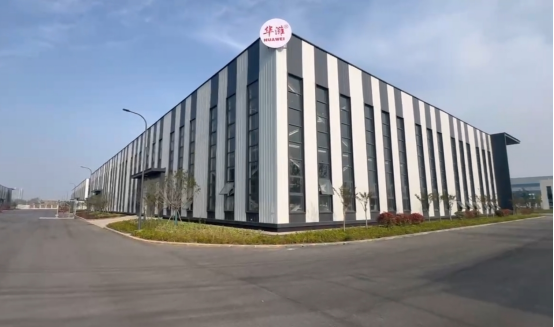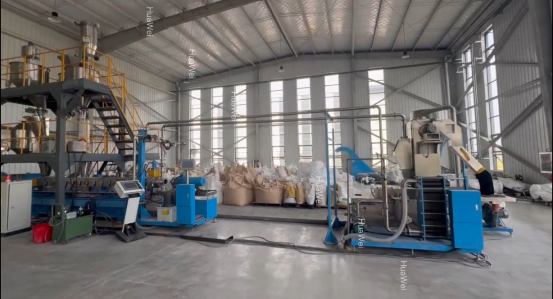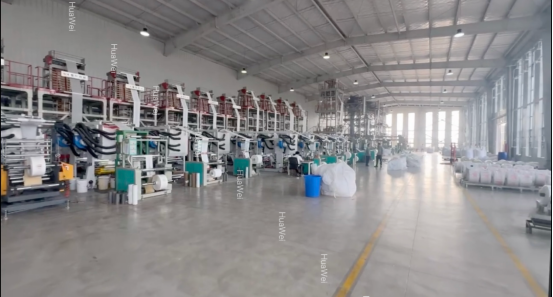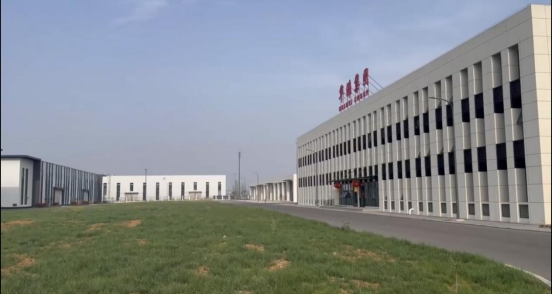Weifang Huawei New Material Technology Co., Ltd. is a high-tech enterprise specializing in the research and development, production, and sales of biodegradable modified materials. Its production base in the field of biodegradable materials has the following characteristics and functions:

Huawei Company has 15 degradation particle production lines and an annual particle production capacity of 60000 tons. On the bag making production line, the company has 60 blown film machines, 40 machines for making bags, and The company has three high-speed printing machines with 6 colors, with an annual Biodegradable film bag production capacity of up to 10000 tons.


The main products include degradable blown film particles, degradable injection molding particles, degradable blow molding particles, water-soluble films, degradable films, degradable bags, degradable tableware, etc.
The product is widely used in bag making factories, blow molding factories, express delivery companies, hospitals, supermarkets, catering chain stores and other fields,
The product has obtained degradation certification from domestic, EU (DIN CERTCO, TUV), US (BPI), Australia (ABA) and other countries or regions.
The company has obtained multiple qualifications such as ISO9001 quality management system certification and ISO14001 environmental management system certification.
The biodegradable materials produced by Huawei Company are completely biodegradable, and there is no pollution after disposal, which meets environmental protection requirements.
The company's bentonite modified starch composite material (BMSC) technology has filled the domestic gap and promoted the recycling and complete degradation of plastic products.
The role of biodegradable modified materials in daily life is mainly reflected in the following aspects:
Food packaging: Packaging materials made from biodegradable modified materials, such as corn starch modified materials, calcium carbonate modified materials, PLA, PBAT, etc., can be used for food bags, supermarket shopping bags, fast food utensils, etc. They can effectively reduce the environmental pollution caused by traditional plastic packaging, and have good water resistance, oil resistance, and mechanical properties, meeting the requirements of food packaging.
Express packaging: In the express delivery industry, biodegradable plastic packaging bags, plastic tape, disposable plastic woven bags and other materials can replace traditional non biodegradable packaging materials, reduce the impact of express waste on the environment, and promote the green development of the express delivery industry.
Cosmetics/Skincare Packaging: Some biodegradable materials can be used for cosmetics packaging, such as packaging made of cellulose and its derivatives, which are suitable for non hygroscopic dry cosmetics, not only environmentally friendly, but also meet the aesthetic and practical requirements of packaging.
Agricultural film: Traditional polyethylene agricultural film is difficult to degrade after use, which can cause soil pollution and yield reduction. Agricultural films made from biodegradable modified materials, such as corn starch modified materials, calcium carbonate modified materials, PLA, PBAT and other materials, can degrade in the natural environment after use, reducing land pollution and promoting green agriculture.
Pesticide and fertilizer slow-release materials: Degradable materials can be used to make slow-release carriers for pesticides and fertilizers, allowing them to be slowly released, improving their utilization rate, reducing environmental pollution, and also promoting crop growth.
Medical sutures: Medical sutures made of biodegradable materials such as PLA have good biocompatibility and degradability. They do not need to be removed after wound healing and can be completely metabolized by the human body, reducing patient pain and infection risk.
Drug sustained-release carriers: Degradable materials can be used to make drug sustained-release carriers, such as PLLA and PDLLA, which can control the release rate of drugs, improve drug efficacy, and reduce drug pollution to the environment.
Disposable medical supplies: such as disposable surgical gowns, medical fixation devices, medical bandages, etc., made of biodegradable modified materials, not only environmentally friendly, but also meet the requirements of sterility, strength, and other aspects of medical supplies.
Disposable tableware: Disposable tableware made of biodegradable modified materials, such as PLA tableware, has good heat resistance, hydrolysis resistance, and mechanical properties, which can replace traditional non biodegradable disposable plastic tableware and reduce white pollution.
Straws: PLA straws can meet the needs of policies and consumers for environmentally friendly straws, such as Starbucks' "slag tube" made of PLA and coffee grounds, which is not only environmentally friendly but also has certain characteristics.
Clothing materials: Biodegradable fabrics can be used to make clothing, such as pure cotton fabrics, which can be completely decomposed by microorganisms in nature and are harmless to the environment, known as "green" fabrics. In addition, some companies also use cellulose liquid to make clothing and shoe uppers, which are integrated into one piece, reducing resource waste and garbage generation in traditional processes.
3D printing: PLA is one of the commonly used materials in 3D printing, with good printing performance and environmental friendliness. It can be used to make various 3D printing models and components, promoting the development of 3D printing technology.
Marine environmental protection: Some biodegradable materials can also degrade in the marine environment, such as PHA, which can be used to make marine garbage bags, marine aquaculture equipment, etc., reducing the damage of marine plastic waste to the marine ecological environment.

As a production base for biodegradable modified materials, Huawei Company not only has advantages in technology research and development and production scale, but also promotes the widespread application and sustainable development of biodegradable materials through environmental certification and market application.
